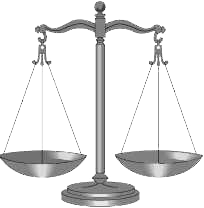Petrarch's testamentum: Difference between revisions
get rid of copyvio in 1st paragraph |
brought back in the other's names dropped by accident. |
||
| Line 4: | Line 4: | ||
[[Image:Scale of justice.png|thumb]] |
[[Image:Scale of justice.png|thumb]] |
||
'''Petrarch's testamentum''' is the [[last will and testament]] of [[Francesco Petrarca]], written on April 4, 1370 in [[Padua]]. It names as his heirs his brother Gherardo, [[Giovanni Boccaccio]], and his son-in-law [[Francescuolo da Brossano]], who also served as the executor of his estate. |
'''Petrarch's testamentum''' is the [[last will and testament]] of [[Francesco Petrarca]], written on April 4, 1370 in [[Padua]]. It names as his heirs his brother Gherardo, [[Giovanni Boccaccio]], and his son-in-law [[Francescuolo da Brossano]], who also served as the executor of his estate. Others named as heirs were Pierre Clermont dit Monet, Jean dit Monet, Bartolomeo da Siena detto Pancaldo (a servant), Bonzanello da Vigonza, Francesco da Carrara, Giovanni Dondi dall’Orologio, Tommaso Bombasi, Lombardo della Seta, Giovanni a Bocheta, and Donato degli Albanzani. |
||
[[Francescuolo da Brossano]], being "the good-natured and uncultivated" important official of the [[Carrara|Carrarese]] administration, was to manage the prestigious materials of [[Petrarch's library]]. He first allowed close friends and admirers of Petrarch to make copies or to just read the famous works of the poet, however even though he had control of this [[Property|patrimony]], Petrarch's library materials suffered dispersion. |
[[Francescuolo da Brossano]], being "the good-natured and uncultivated" important official of the [[Carrara|Carrarese]] administration, was to manage the prestigious materials of [[Petrarch's library]]. He first allowed close friends and admirers of Petrarch to make copies or to just read the famous works of the poet, however even though he had control of this [[Property|patrimony]], Petrarch's library materials suffered dispersion. |
||
Revision as of 20:46, 2 July 2007
An editor has nominated this article for deletion. You are welcome to participate in the deletion discussion, which will decide whether or not to retain it. |

Petrarch's testamentum is the last will and testament of Francesco Petrarca, written on April 4, 1370 in Padua. It names as his heirs his brother Gherardo, Giovanni Boccaccio, and his son-in-law Francescuolo da Brossano, who also served as the executor of his estate. Others named as heirs were Pierre Clermont dit Monet, Jean dit Monet, Bartolomeo da Siena detto Pancaldo (a servant), Bonzanello da Vigonza, Francesco da Carrara, Giovanni Dondi dall’Orologio, Tommaso Bombasi, Lombardo della Seta, Giovanni a Bocheta, and Donato degli Albanzani.
Francescuolo da Brossano, being "the good-natured and uncultivated" important official of the Carrarese administration, was to manage the prestigious materials of Petrarch's library. He first allowed close friends and admirers of Petrarch to make copies or to just read the famous works of the poet, however even though he had control of this patrimony, Petrarch's library materials suffered dispersion.
In Petrarch's testament he first puts forward his own spirit to God. The poet then takes care of the issue of the interment to give his body and lists seven localities: Padova, Arquà, Venice, Milan, Pavia, Rome and Parma. He then indicates the church, in which or near which, he wishes to be buried should he die in one of these localities.
In hisTestamentum Petrarch addresses his assets and lands listing his disbursements:
- to Francisco da Carrarathe, the splendid Madonna di Giotto (“whose beauty ignoring does not comprise, but the masters find it wonderful")
- to Lombardic, horses and a silver goblet to one I trusted much.
- to Tommaso Bombasi his liuto, to play “not for the vanity of the world, but to eternal praise of God”
- to Giovanni Boccaccio, memore of his ristrettezze, fifty fiorini of gold in order to buy one winter garment with which to face the study wakings.
- to Francescuolo da Brossano all the rest will go “not solum ut heredem, sed ut filium carissimum” (not only like heir, but like the most beloved son).
It should be noted that the only thing of which mention is not made, particularily to the causual observer, is Petrarch's library. That's because he bequeathed his splendid library of personal manuscripts and books to the city of Venice and the church of Saint Mark in exchange for a house in 1362, in which he lived for 5 years. Part of these became the nucleus of the Biblioteca Marciana. Because of Petrarch's gift of books and manuscripts he became the founder of the famous library.[1] Most of Petrarch's personal manuscripts are now lost, however some manuscripts in Petrarch's handwriting of copies of ancient authors are still in the archives.
Petrarch's Paduan patron, Francesco da Carrara, gave him some land at Arquà in the Euganean Hills near Padua in 1368. Petrarch ultimately built a house and retired there in 1370. It was here that Petrarch wrote his Testamentum, while being in very poor health. There he received friends, wrote, and studied the ancient philosophers. He lived there with his daughter Francesca. She was then married and moved there with her family and husband Francescuolo da Brossano. Petrarch lived there until his death in 1374. The report of Petrarch's death by his son-in-law Francescuolo evoked a lengthy reply from Giovanni Boccaccio in which he lamented his loss and lavishly praised the poet's works, especially the epic poem Africa.
Notes
- ^ The American Dictionary and Cyclopedia, published by American Dictionary and Cyclopedia, New York and Chicago 1899, page 2366
Reference
- Petrarch's Testament edited and translated with an introduction by Theodor E. Mommesen (grandson of Theodor Mommsen), printed by Cornell University Press, Ithaca, New York and Oxford University Press in 1957.
- This article incorporates text from a publication now in the public domain: Chisholm, Hugh, ed. (1911). Encyclopædia Britannica (11th ed.). Cambridge University Press.
{{cite encyclopedia}}: Missing or empty|title=(help)
